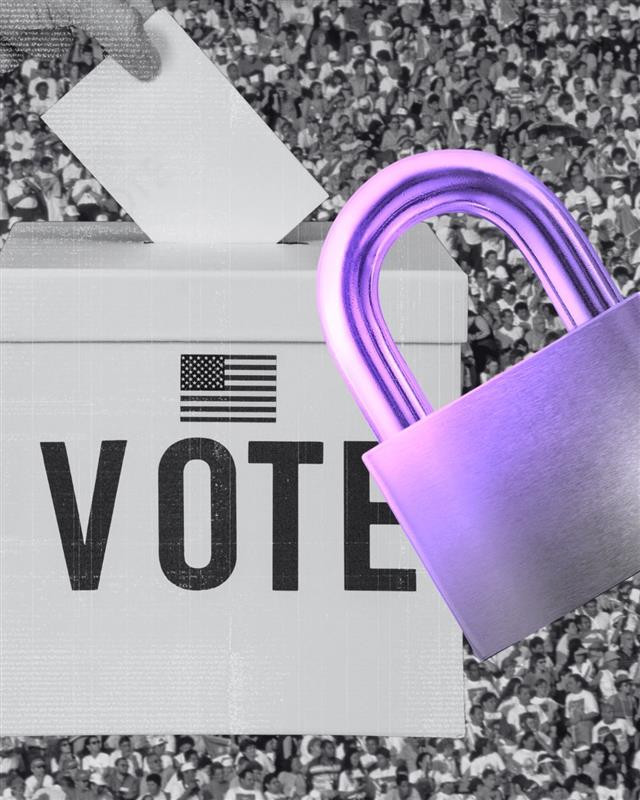But here's the thing: affordability STILL matters. It's still an important issue. Things have only gotten more expensive since January.
The Big Picture
Here at the Independent Center, we recently launched Declare Your Independence. We've been shaking things up, and Declare Your Independence is a way for you, dear reader, to share your story with us about why you've cast off the yoke of the two-party duopoly in favor of independence.
Brionna's comments got me thinking.
"Both parties are just worried about the wrong thing instead of the most important things."
Affordability was an important topic of conversation just a few months ago. In fact, the Wall Street Journal decided to run an Editorial Board Opinion piece and a journalistic piece in the policy section on the same day, highlighting this very issue. The day after those two pieces were published, March 3, 2025, the price of a dozen eggs was tracking at a staggering $8.17 per dozen. It begs the question: Why aren't the two parties discussing this anymore?
But here's the thing: affordability STILL matters. It's still an important issue. Things have only gotten more expensive since January. I mean, sure, eggs have decreased from their high of $8.17 per dozen to $3.15 per dozen. That's a real drop and nothing to laugh at, but they are still up four times their lowest price in the last two years.
Zooming In
In early May, the Federal Open Market Committee of the Federal Reserve Board of Governors met (full meeting minutes here). The WSJ encapsulates things concisely: "Federal Reserve officials signaled concern at their meeting earlier this month that large tariff hikes would push up prices and could risk stoking higher inflation." The Committee also mentioned one of the most feared terms in economics: stagflation, a situation where economic growth is stagnant, yet inflation continues to rise.
We've discussed tariffs extensively here at the IC: here, here, here, here, here, here, and here. The fundamentals haven't changed; a tariff is still a tax paid by us consumers. The added unpredictability of the tariffs also does not help consumers. One moment the tariffs are in place, and then the President chickens out (See the FT for the TACO trade theory). Or, in the most recent round, the U.S. Court of International Trade overturned many of the Liberation Day tariffs, only to be overruled by the Court of Appeals the next day. This uncertainty makes it especially challenging for businesses, state governments, and even federal agencies to plan.
But what is Congress doing about the rising costs? For one, they are not reclaiming their power over tariffs. Congress has the power of the purse, and it has abdicated its authority over tariffs to the executive (for more information on the Congressional and Presidential authority on tariffs, see here). Additionally, the reconciliation package working its way through Congress doesn't address inflation, nor does it address the rising cost of goods. It will likely make some things more expensive, all the while adding somewhere between $3.8 and $4.3 trillion to the national debt over the next ten years.
The average cost of a new car is over $40,000, and the reconciliation bill eliminates the electric vehicle tax credit. While there aren't many electric vehicles under the $40,000 mark, there are some, and the tax credit, designed to help an infant industry, will make those vehicles $7,500 more expensive for consumers. For those looking at the used EV market, where prices are more affordable, the used EV tax credit (up to $4,000) is also set to disappear, making things more expensive again.
Finally, there are the green energy tax credits that will disappear. This is a broad category that encompasses both energy production and consumption. It's also interesting to note that red states tend to see more activity in construction utilizing these programs. These tax credits are also technology-agnostic, allowing them to be used for wind, solar, and geothermal energy, where appropriate, as well as nuclear power, which can be built anywhere. We won't focus on the climate aspect of this debate here. That said, as a society, we will continue to require more power generation capacity and efficiency as we adopt electric vehicles, expand data centers, and implement more energy-intensive technologies, such as generative artificial intelligence. Slowing the build-out of energy infrastructure will only increase energy costs, as demand for limited resources will remain high.
Independent Lens
So yeah, the parties aren't focusing on what's important. Furthermore, Congress is actively increasing costs by failing to rein in presidential power related to tariffs, and the reconciliation bill does not prioritize affordability. No wonder Brionna declared her independence.


.jpeg)


.jpg)